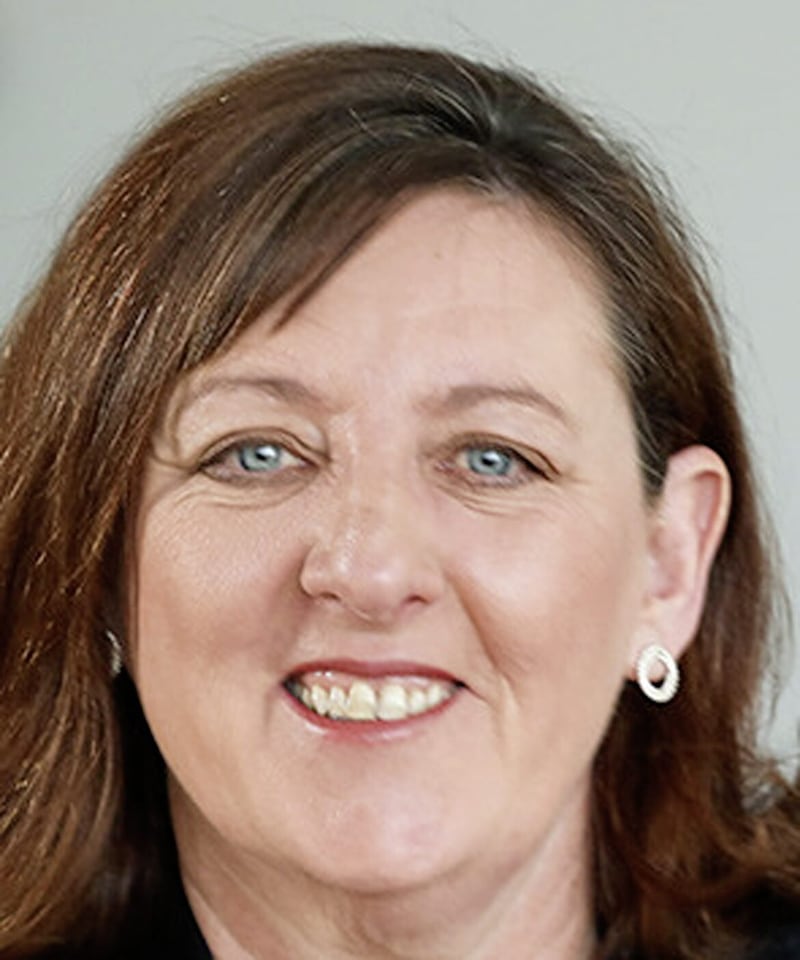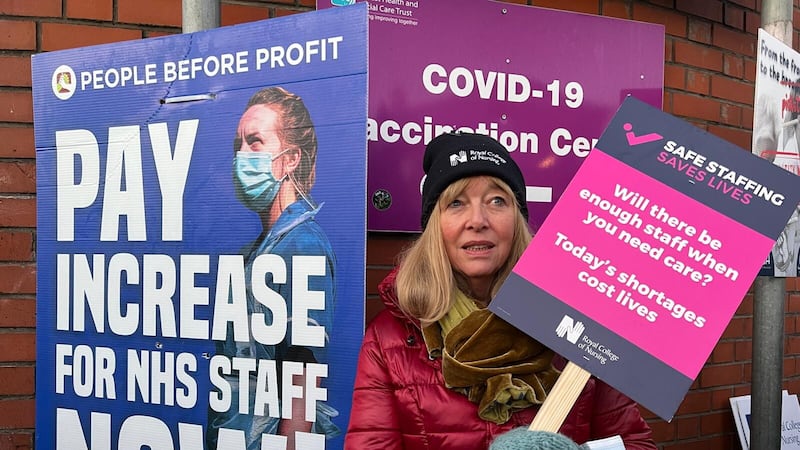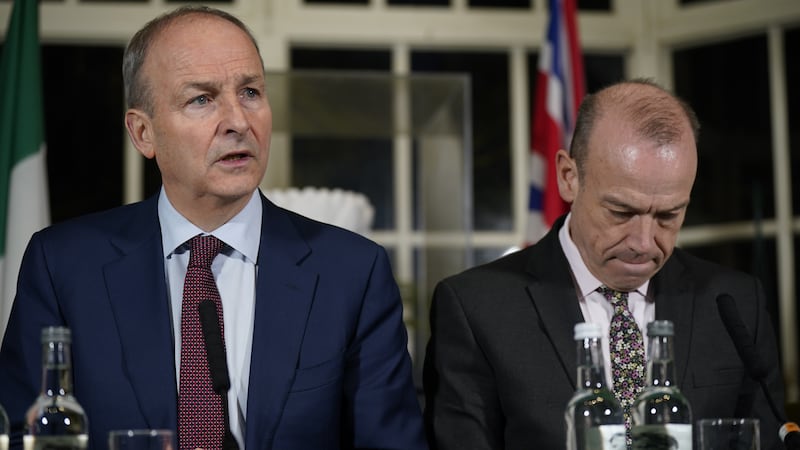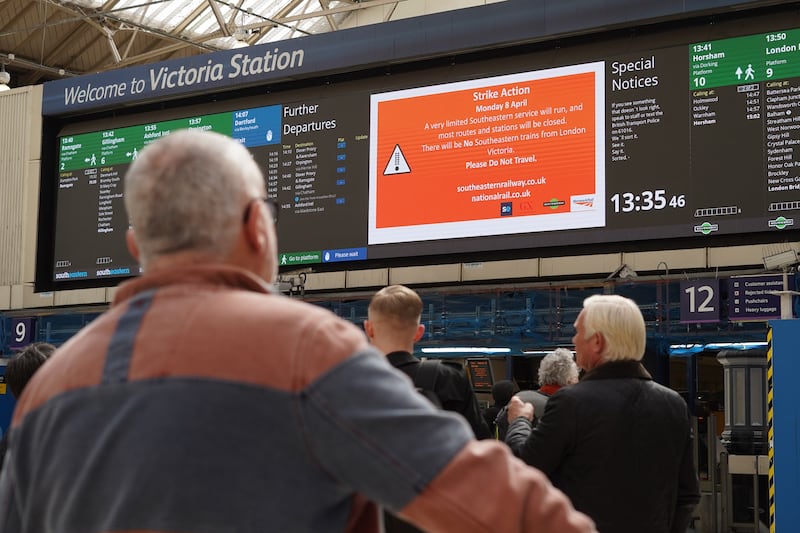A HEATED back and forth between a union and nursing leaders marked the last hours before a historic walk out by nurses across Northern Ireland, England and Wales.
Nurses began manning the picket lines at 8am for the 12 hour action over pay but also to raise awareness over the wider stresses facing the profession.
But the last day before the action was marked by claim and counter claim over the impact of the walk out on patients and services. However, it also took the spotlight away from the UK government and the Health Secretary Steve Barclay's refusal to enter any discussion on pay in the lead up to the action.
Chief nursing officers, including the north’s Maria McIlgorm, wrote a letter to the chief executive of the Royal College of Nursing (RCN) alleging many nursing leaders, chief officers and directors, "expressed feelings of having being let down” by the union and warned of services being badly hit.
The RCN’s local leader, Rita Devlin, countered that nurses were walking out for one day in total, including another 12 hours next Tuesday, but that senior nurses across the water are “silent” on issues such as lack of staffing and care for patients for 364 days of the year. Ms Devlin made clear she was not talking about nursing leaders in the north.
Ms Devlin added she is in contact with all the local nursing directors, and the chief nursing officer, and there is “absolutely no problem” as they craft ways for the action to be carried out while maintaining care for those patients in need.
The RCN has protocols that would allow for certain services to be absolutely exempt from strike action and others where “derogations” will be negotiated at trust level.
In the case of accident and emergency departments, Ms Devlin said all will be operating on a “Christmas Day model”. “For emergency departments that is the same as every other day,” the nursing leader said.
The RCN will operate under a “life preserving care model”, meaning compete strike action exemptions for critical care units, dialysis, chemotherapy services, neo-natal and paediatric ICU, and paediatric A&E.
It is also using the 2019 nurses strike as a template on negotiations over further cover, including a Sunday or Christmas Day service and a night duty model where those working night agree to cover days.
Requests for extra staff were considered on a case-by-case basis in discussions between the trusts and local union leaders.
The five trusts have publicly provided little specific information on what services they expect to be disrupted. Each was still saying late into Wednesday negotiations are continuing with unions and that if a patient has not been contacted the scheduled appointment is still going ahead.
In a statement, the Department of Health said: "Intensive work is ongoing to mitigate the impact on patients where possible. There has been constructive partnership working between the RCN and the Chief Nursing Officer and HSC Trust Directors of Nursing on patient safety issues, including derogations from strike action to maintain critical services.
"There is particular concern at the cumulative impact of repeated strike days, at a time when the health service is facing what many regard as the most challenging winter in its history."
The letter to the RCN leader from Dame Ruth May, chief nursing officer for England, co-signed by Ms McIlgorm, to RCN leader Pat Cullen, states that there are concerns over the union’s assumption “that night duty staffing on day duty is safe". This has the "potential to significantly impact on the safety of patient care", including the delivery of intravenous antibiotics.
It also raises concerns over nursing care in the community, including "urgent and time critical" palliative and end of life interventions. Further, the letter suggests local union leaders are not following the national protocols on chemotherapy.









